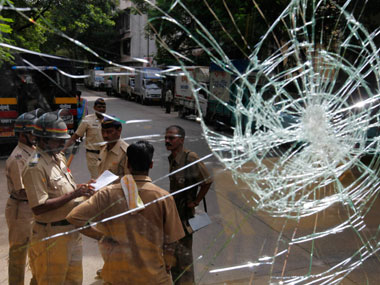The Supreme Court has ruled that Sanjeev Nanda, who was charged with culpable homicide after running over six people in his BMW in 1999, will not have to serve any further jail time.
Instead the court sentenced him to two years of community service.
Nanda, grandson of former Naval Chief S M Nanda, was ordered by the court to pay a compensation of Rs 50 lakh to the Centre which will be used for other road accident victims in which erring drivers could not be traced.
34-year-old Nanda had mowed down six people, including three policemen, with his BMW in 1999.
A bench of justices Deepak Verma and KS Radhakrishnan partially set aside the Delhi High Court’s order convicting Nanda under lenient provision of 304 A of the Indian Penal Code (IPC) for rash and negligent driving, but upheld the two year jail term that was awarded to him.
The apex court, however, convicted him under the stringent provision of 304 Part II (culpable homicide not amounting to murder) of IPC, which prescribes maximum punishment of 10 years.
Flaying Nanda for running away after mowing down six people with his car on January 10, 1999, the bench said his conduct is “highly reprehensible”.
The decision effectively upheld a decision by the Delhi High Court to reduce his five year jail sentence to two years. The Delhi police subsequently appealed the decision, and asked for a harsher punishment of ten years to be imposed.
The case generated much outrage, especially after it emerged that Nanda and his friends did not stop to help the victims, and instead raced away after the accident.
In separate judgements written by the judges, Justice Radhakrishnan was more critical of Nanda’s conduct in the 13-year-old incident.
He said Nanda was driving the vehicle and he didn’t stop after mowing down six people.
“Some mercy could have been shown to the victims,” Justice Radhakrishnan said while pointing out that Nanda fled away from the spot leaving the victims to die.
Justice Radhakrishnan also made it clear that payment of compensation to victims’ families by Nanda and his age of 21 years at the time of incident are not mitigating factors while deciding the case against him.
He also said that the high court was wrong in convicting Nanda under lenient provision of IPC and said that it would send a wrong message to the public.
The apex court had on 1 August acquitted the three persons sentenced to varying jail terms for tampering with evidence in the case.
with inputs from PTI


)




)
)
)
)
)
)
)
)